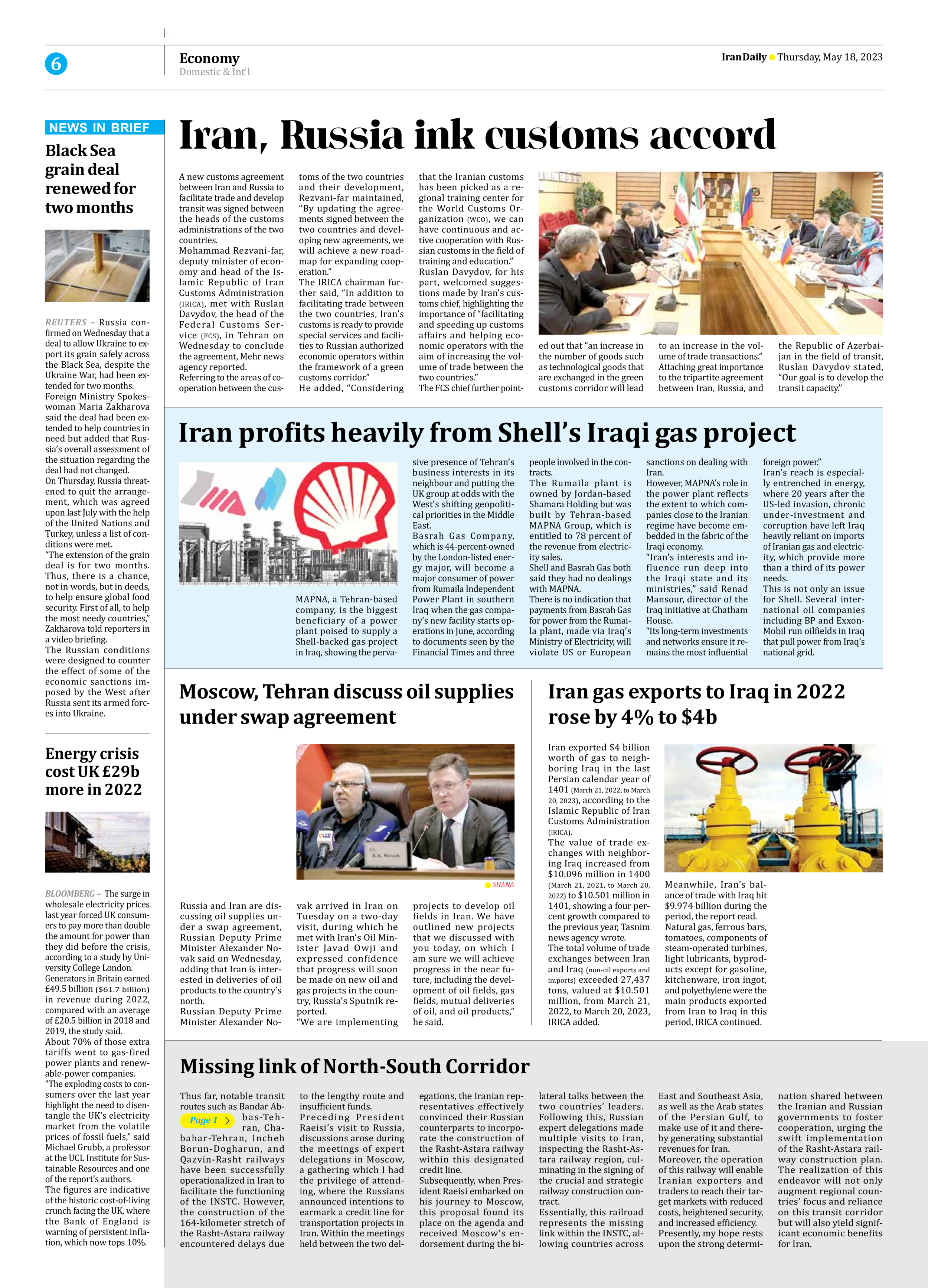
Iran profits heavily from Shell’s Iraqi gas project
MAPNA, a Tehran-based company, is the biggest beneficiary of a power plant poised to supply a Shell-backed gas project in Iraq, showing the pervasive presence of Tehran’s business interests in its neighbour and putting the UK group at odds with the West’s shifting geopolitical priorities in the Middle East.
Basrah Gas Company, which is 44-percent-owned by the London-listed energy major, will become a major consumer of power from Rumaila Independent Power Plant in southern Iraq when the gas company’s new facility starts operations in June, according to documents seen by the Financial Times and three people involved in the contracts.
The Rumaila plant is owned by Jordan-based Shamara Holding but was built by Tehran-based MAPNA Group, which is entitled to 78 percent of the revenue from electricity sales.
Shell and Basrah Gas both said they had no dealings with MAPNA.
There is no indication that payments from Basrah Gas for power from the Rumaila plant, made via Iraq’s Ministry of Electricity, will violate US or European sanctions on dealing with Iran.
However, MAPNA’s role in the power plant reflects the extent to which companies close to the Iranian regime have become embedded in the fabric of the Iraqi economy.
“Iran’s interests and influence run deep into the Iraqi state and its ministries,” said Renad Mansour, director of the Iraq initiative at Chatham House.
“Its long-term investments and networks ensure it remains the most influential foreign power.”
Iran’s reach is especially entrenched in energy, where 20 years after the US-led invasion, chronic under-investment and corruption have left Iraq heavily reliant on imports of Iranian gas and electricity, which provide more than a third of its power needs.
This is not only an issue for Shell. Several international oil companies including BP and ExxonMobil run oilfields in Iraq that pull power from Iraq’s national grid.







